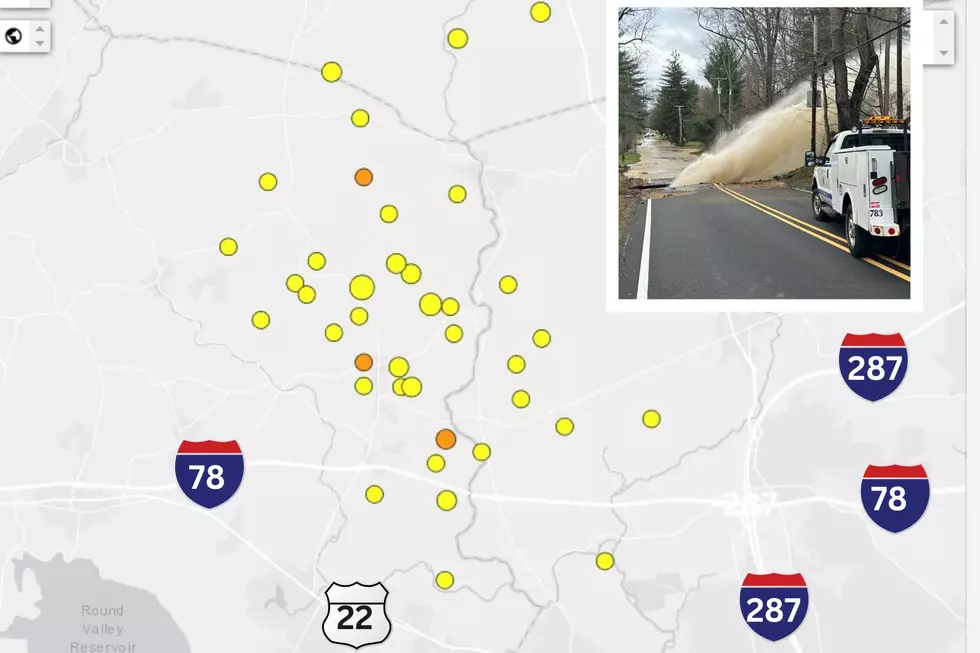What to expect if NJ student athletes protest during the national anthem
Saturday, while Rutgers' Scarlett Knights and the Nebraska Cornhuskers stayed in their locker rooms during "The Star-Spangled Banner," political and cultural forces well beyond the scope of their game were in play.
More than 200 players across the NFL this weekend sat, knelt or raised their fists as the national anthem played at their games, either to protest what they said were examples of racial injustice or policy brutality, or to stand in solidarity with those who were doing so.
Any they did so as athletes and the NFL itself drew sharp and angry criticism from President Donald Trump, who called for protesting players to be suspended or fired.
But Rutgers football Coach Chris Ash said in a post-game press conference his team wasn't protesting — and the decision to stay in the locker room was shared by both teams.
"We're a program that we do respect everybody's beliefs and opinions and we are a team. And we want to act like a team. But these guys are also people and humans and they've got their own thoughts and beliefs," he said. "And we respect those. We have not had any issues with regards to demonstrating, so to speak, during the national anthem. Don't anticipate any."
Red-shirt senior Jerome Washington told the Asbury Park Press that the protest of the Anthem at the professional level is "definitely something that I take seriously."
"Because being a black male in this country, I've heard stories and I've seen with my own eyes the injustice that a lot of blacks go through," he said. "So it is definitely something that I can relate to in a way, and I think that people should be able to express themselves in ways they choose."
Can players get in trouble?
The NCAA does not specifically require players to be on the field for the national anthem.
And Mike Cherenson, a spokesman for the NJSIAA, told New Jersey 101.5 that the state's governing body for high school sports, "does not have any policy or regulations related to the national anthem."
Last year several schools, followed the example set by Colin Kaepernick, then of the San Francisco 49ers, as players took knees during the Anthem.
One of those schools was Woodrow Wilson High School in Camden, where both the coach and players took a knee. At that time, Coach Preston Brown told NJ.com he saw the anthem as a "formality," and that "It never meant that much to me."
"(Because) of recent events that happened the last couple years, things I experienced in college being an African-American student athlete in the south (at Tulane), I felt it was an appropriate time to do that," he said at the time.
Maita Soukup, a spokesperson for the Camden schools, said this year Woodrow Wilson players are taking a different approach.
"This year the Woodrow Wilson High School football team has been locking arms during the national anthem," she said. "The team is doing community service as a way to directly address the social issues they were raising awareness of last season."
Soukup said the district is "supportive of our students whenever they use their voice to participate in social dialogue and share their experiences."
A New Jersey School Boards Association spokesperson told NJ.com this week no New Jersey "statute, code or case law" addresses protesting during the Anthem at a scholastic event. And a representative of the National Coalition Against Censorship told the site a prohibition would be unlikely to survive a lawsuit.
Several districts last year expressed explicit support for their students. Newark school superintendent Christopher Cerf said at the time he hoped protests "will spark a broader conversation about issues of social justice."
Some student athletes took a different approach: Wayne Valley High School's co-captain in 2016 carried a “thin blue flag” onto the field during a home opener against Lakeland High School, and dedicated the game to law enforcement.
What about private schools?
Last year, while Camden public schools supported team members in their expression, the Diocese of Camden threatened to crack down on what it saw as an unacceptable form of disrespect.
"Our schools are founded on the teaching of respect and honor; respect and honor for Goud, country an duly appointed authority," Diocese of Camden school superintendent Mary Boyle said in a letter last year. "It is expected that our administration and coaches as well as our athletes will show respect during prayer, pledges and the playing or singing of the national anthem."
Boyle said in last year's letter that students who did not stand for the anthem risked a two-game suspension. It was the first diocese to set such a rule.
According to the American Civil Liberties Union of New Jersey at the time, since private or parochial school is not a government entity, it has more leeway to establish a policy like the Camden Diocese’s.
“They have a much wider range to enact regulations over student conduct and expression,” Deputy Legal Director Jeanne LoCicero told New Jersey 101.5 last year.
The diocese did not respond to messages Monday seeking comment about whether any players were suspended last year or what steps were taken for the current school year.
More From New Jersey 101.5
Contact reporter Adam Hochron at 609-359-5326 or Adam.Hochron@townsquaremedia.com
More From New Jersey 101.5 FM









